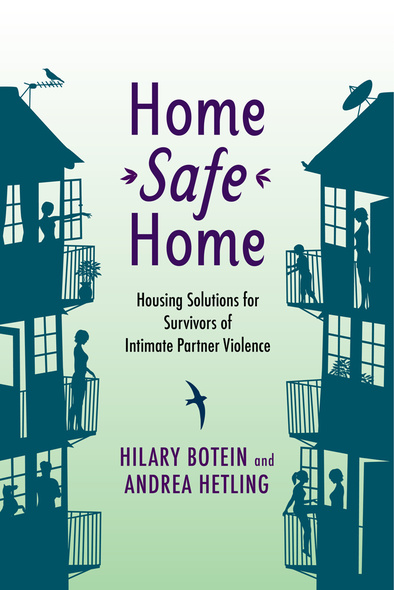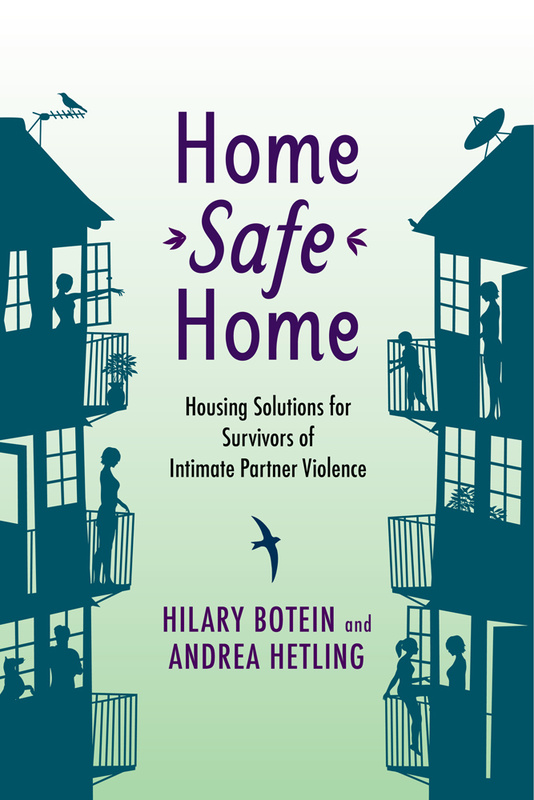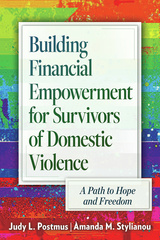Our shopping cart is currently down. To place an order, please contact our distributor, UTP Distribution, directly at utpbooks@utpress.utoronto.ca.

208 pages, 6 x 9
3 diagrams and 3 halftones
Paperback
Release Date:05 Dec 2016
ISBN:9780813585840
Home Safe Home
Housing Solutions for Survivors of Intimate Partner Violence
Rutgers University Press
Housing matters for everyone, as it provides shelter, security, privacy, and stability. For survivors of intimate partner violence (IPV), housing takes on an additional meaning; it is the key to establishing a new life, free from abuse. IPV survivors often face such inadequate housing options, however, that they must make excruciating choices between cycling through temporary shelters, becoming homeless, or returning to their abusers.
Home Safe Home offers a multifaceted analysis that accounts for both IPV survivors’ needs and the practical challenges involved in providing them with adequate permanent housing. Incorporating the varied perspectives of the numerous housing providers, activists, policymakers, and researchers who have a stake in these issues, the book also lets IPV survivors have their say, expressing their views on what housing and services can best meet their short and long-term goals. Researchers Hilary Botein and Andrea Hetling not only examine the federal and state policies and funding programs determining housing for IPV survivors, but also provide detailed case studies that put a human face on these policy issues.
As it traces how housing options and support mechanisms for IPV survivors have evolved over time, Home Safe Home also offers innovative suggestions for how policymakers and advocates might work together to better meet the needs of this vulnerable population.
In this book, Botein and Hetling provide a thorough and historically informed assessment of our continuing inability to respond effectively to the housing needs of victims of interpersonal violence. By highlighting some effective (and ineffective) strategies, and from their listening to the views of the women affected, they point a way forward that focuses us more quickly on the endgame – stable, long-term housing.
Botein and Hetling have written a marvelously insightful analysis on the importance of housing for abused women seeking a life free of domestic violence. This book shows us how to move forward towards sustainable policy and will be an asset to researchers, advocacy organizations, and all else who care the most about abused women’s needs for stable, safe, and affordable housing.'
In this book, Botein and Hetling provide a thorough and historically informed assessment of our continuing inability to respond effectively to the housing needs of victims of interpersonal violence. By highlighting some effective (and ineffective) strategies, and from their listening to the views of the women affected, they point a way forward that focuses us more quickly on the endgame – stable, long-term housing.
Botein and Hetling have written a marvelously insightful analysis on the importance of housing for abused women seeking a life free of domestic violence. This book shows us how to move forward towards sustainable policy and will be an asset to researchers, advocacy organizations, and all else who care the most about abused women’s needs for stable, safe, and affordable housing.'
HILARY BOTEIN is an associate professor in the School of Public Affairs at Baruch College, City University of New York.
ANDREA HETLING is an associate professor in the Bloustein School of Planning and Public Policy at Rutgers University, New Brunswick, New Jersey.
Preface and Acknowledgments
Introduction
Part I Why Long-Term Housing for Survivors of Intimate Partner Violence?
Chapter 1 - “Why Doesn’t She Leave?”: Intimate Partner Violence and Housing Instability
Chapter 2 - “How Does Housing Help?”: A “Services Light” Long-Term Housing Model
Part II The Current Policy and Service Environment: How Did We Get Here?
Chapter 3 - First Stop: Emergency Shelters and Transitional Programs
Chapter 4 - Mismatch between US Social Policy and Intimate Partner Violence
Part III An Evolving Approach: Long-Term Housing
Chapter 5 - National Overview: Legislative Response and Program Variations
Chapter 6 - Developing Program Theory and Goals: Long-Term Housing with Services
Chapter 7 - Survivor Perspectives on Program Theory and Models
Part IV Next Steps?
Chapter 8 - Moving Forward: Research and Policy
Epilogue: A Practitioner’s Perspective
Appendix
Bibliography
Index








